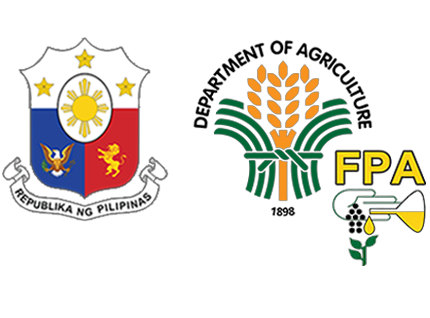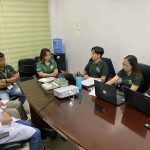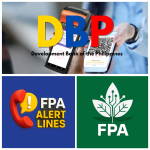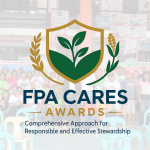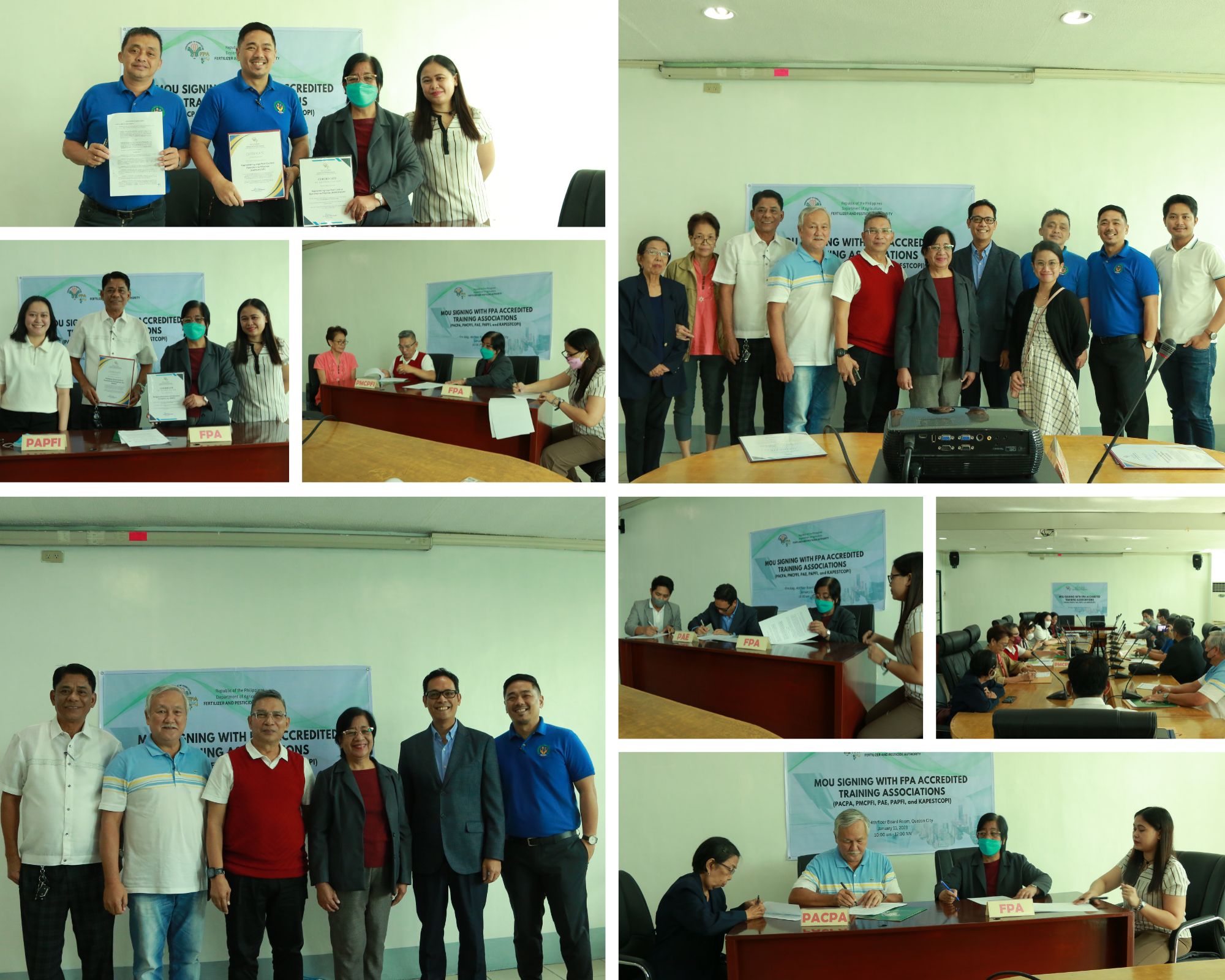
QUEZON CITY | January 11, 2023 – The Philippine Association of Certified Pesticide Applicators (PACPA), PMCP Foundation Inc. (PMCPFI), the Philippine Association of Entomologists, Inc. (PAE), the Philippine Association of Professional Fumigators, Inc. (PAPFI), and the Kapisanan ng mga Pest Control Operators sa Pilipinas, Inc. (KAPESCOPI) signed a Memorandum of Understanding (MOU) with FPA, headed by Ms. Julieta B. Lansangan, OIC Executive Director for the renewed partnership in the conduct of education and training programs for Agricultural Certified Pesticide Applicators (CPA), Accredited Responsible Care Officers (ARCO), Fertilizer, Pesticide, and Veterinary Researchers on January 11, 2023, at FPA Bldg., Visayas Ave., Quezon City.
The MOU outlines the two interested parties’ shared responsibility for training management. FPA will have the following responsibilities and obligations:
a) Monitor the proceedings of the training course and give its evaluation afterwards;
b) Act as a Resource Person under Module 1 (FPA Rules and Regulations) of the training module;
c) Compute the overall evaluation of the training association based on the prescribed guidelines;
d) Set the annual meeting with the training associations to discuss among others the outcome of the previous year’s training activities, agreed on the schedule of trainings and symposia of the current year and plans that will improve the conduct of the trainings;
e) Administer the examination for Certification/Accreditation; and
f) Provide the basic training requirements in the form of guidelines and parameters for the training course.
On the other hand, the training associations are tasked to:
a) Provide supervision and management over the training course;
b) Provide resource persons as required in the program;
c) Evaluate the applicants using the eligibility criteria set forth by FPA;
d) Provide the needed materials, manuals and supplies, including certificates and other paraphernalia needs in the training program;
e) Collect reasonable fees to defray the costs of food, materials, resource speakers, management, etc.;
f) Evaluate the participants’ training performance based on the criteria set forth by FPA; and
g) Submit to FPA a training report which shall include the following: program, resource speakers, and financial report, a month after the training has been conducted.
For 2022, 3,433 accreditation cards have been issued, of which 2,198 were for ASD, 324 for ARCO, 773 for Agricultural CPA, and 138 for researchers.
Individuals intending to either apply or renew their existing license should choose a schedule at https://bit.ly/3CCAXvV. Afterwhich, they have to coordinate with the FATA to reserve a training slot and submit necessary training requirements. ###
Written by: Camille-Mai Valles | Published: 12 January 2023
Fertilizer and Pesticide Authority (FPA) Online ISSN: 2815-1674
Published by the FPA Information and Communications Team
